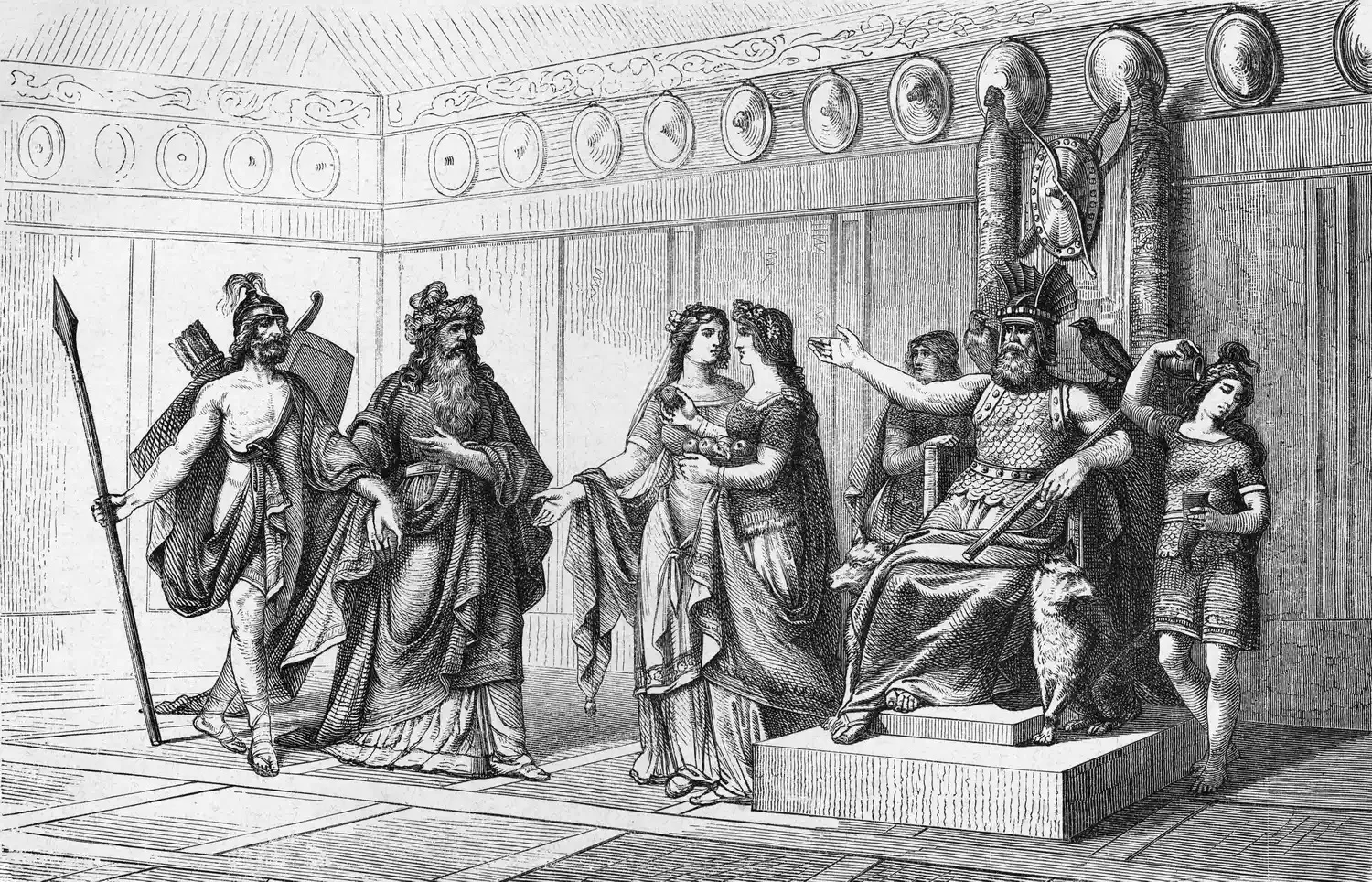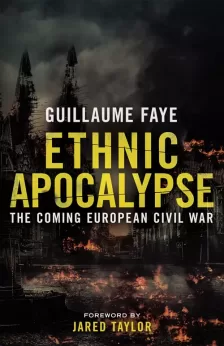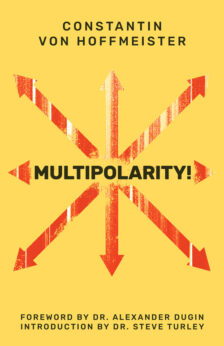The Hávamál, or ‘Sayings of the High One’, is well known by Odinists and scholars of Northern European myth especially for the section where Odin sacrifices himself to himself, hanging in the windy tree for nine nights, fasted and spear-wounded. Thus he gains wisdom and insight after drinking the mead of poetry.
However, in our modern world, if a man were to proclaim himself to be a poet, or say that he writes poetry, or maybe is simply seen reading poetry, his male peers may well raise an eyebrow.
In the blue collar world of factory work, strong hands, gruff voices and motorcycles, a man of poetry will be viewed as effeminate. This is a generalisation of course, but it is true.
Yet this situation is a prime example of how our enemies have upturned and subverted something which forms a key part of who we are. Our foes thrive of the inversion of all things good and holy.
Long before history was written down, it existed as myth. And the form the myth took was poetry. We must understand that the word ‘myth’ does not mean ‘lie’. Myth is a primal truth, spoken poetically and often utilising allegory.
The Poetic Edda is an obvious source for understanding our history, but previous to it being scribed onto vellum, the stories therein would have been spread by word of mouth poetically by bards and musicians, or simply retold by the flickering light of a fire during the long, cold northern nights by family members and travelling hunters or traders.
The pre-historical aspects of northern European life are open to debate and speculation; however, it is the metaphysical aspect of poetry itself which this article attempts to explain.
Consider that we are in a spiritual war. The enemies which operate against us cannot be simply smashed with physical force (although individual physicality must not be overlooked). Our struggle is cyclical and Yugic; the revolution of the Age depends not so much on who can flex the biggest muscle but on whether our folk can awaken and drive the cycle of change.
This idea of Yugic cycles can be difficult to comprehend. Evola described it well with his ‘Ride the Tiger’ analogy, but even that can be misunderstood. Sitting and waiting for a new era is not the way it works. The movement of the Age is inextricably linked to the awakening process. As our folk awaken, so the Age cycles onwards and upwards until the dawning of Satya Yuga.
So how does this correspond to poetry? Ask yourself this: what is superior, poetry or prose?
The answer would depend on individual perspective. Imagine a workshop manual written poetically. At best this would be amusing, at worst dangerous. How about a novel? Hemingway is considered one of literature’s greats, but his typewriter can almost be heard as one reads his machine-gun-like prose.
Now imagine a meeting of two men: a virtuoso violin player and an engineer. Both are human. Both are, for argument’s sake, white. Both come from the same class even. But how would they interact? Would they get along? How would they approach a problem? Might they be considered to be wired up differently in the brain?
Don Miguel Serrano once said, “My message is not wholly understood; only poets understand it.”
The engineer is akin to the scientist – mathematical, straightforward, logical. The poet is akin to the man of religion, the musician or even the quantum physicist – imaginative, artistic, idealistic, free-thinking, perhaps.
The fact is that in order for anything physical to progress, there has to be an element of the non-physical – a spark of unquantifiable creation which is poetic in nature.
Poetry is, therefore, the closest thing to creation in words.
As our folk fell into the inevitable dark abyss of the Wolf Age, all that was golden and beautiful became base and ugly. In the realm of healing vibration, poetic language became dull, monotone prose – the ultimate violation being words imprinted upon a page. The inky death of cosmic, creational frequency.
In Odinism, the metaphor used for poetry is mead. It is drunk at our ceremonies to symbolise such things as wisdom, awakening, runic magic and of course the Golden Age.
The engineer and the musician are different, as are the poet and the carpenter or, indeed, the scientist and the gothi (an Odinic priest). But we must recognise that in ancient times, there was no separation. The ultimate avatar is a king, a warrior and a priest. One step away from a god. All the aspects of science and religion, of muscle and art, of creation and beauty, of physicality and idealism in one fine example of a leader.
That leader shall come and the Golden Age shall be driven into being by the collective force of our awakening people.
Folk Awake – Avatar Arise!







